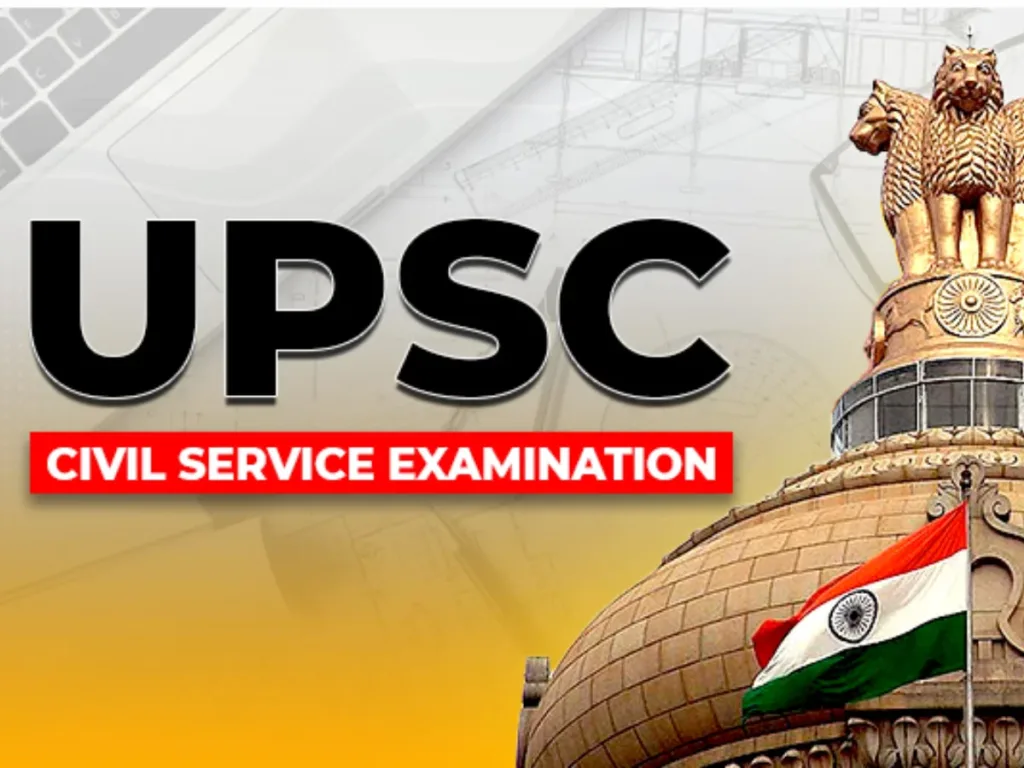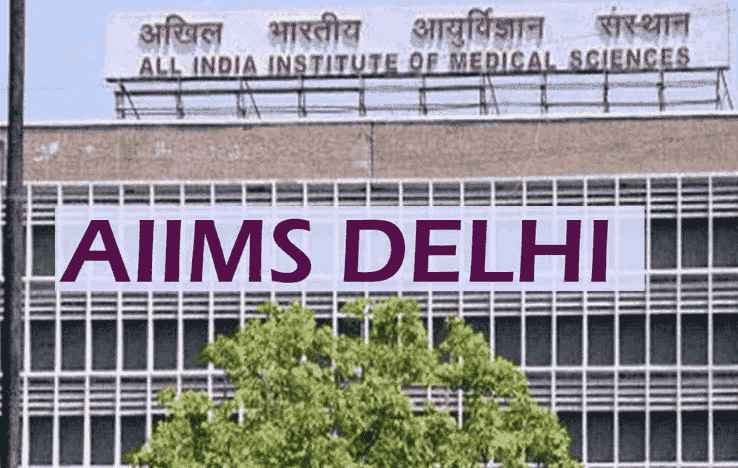The top 5 toughest exams in India are UPSC Civil Services, IIT-JEE, GATE, CAT, and NEET. These exams test knowledge and analytica skills.
India has a reputation for its competitive and challenging exams, designed to select the best talent. The UPSC Civil Services exam is known for its vast syllabus and rigorous selection process. IIT-JEE is the gateway to the prestigious Indian Institutes of Technology and demands strong aptitude in science and mathematics.
GATE tests engineering graduates for higher studies and jobs in public sector units. CAT is crucial for admission to top business schools, testing aptitude and reasoning. NEET is essential for aspiring doctors, covering extensive medical and biological knowledge. Success in these exams requires dedication, hard work, and strategic preparation.
The Gauntlet of Indian Examinations
India is known for its rigorous education system. It also has some of the toughest exams. These exams test intelligence, perseverance, and dedication. Each exam holds its own significance. They also shape the future of millions of students.
Prestige And Difficulty
These exams are not just difficult. They are also prestigious. Let’s look at the top 5 toughest exams:
- UPSC Civil Services Examination (CSE)
- Indian Institutes of Technology Joint Entrance Examination (IIT-JEE)
- Graduate Aptitude Test in Engineering (GATE)
- Common Admission Test (CAT)
- National Eligibility cum Entrance Test (NEET)
| Exam | Known For | Difficulty Level |
|---|---|---|
| UPSC Civil Services Examination (CSE) | Becoming IAS, IPS officers | Extremely High |
| Indian Institutes of Technology Joint Entrance Examination (IIT-JEE) | Engineering Colleges Entry | Very High |
| Graduate Aptitude Test in Engineering (GATE) | Postgraduate Engineering | High |
| Common Admission Test (CAT) | Management Colleges Entry | High |
| National Eligibility cum Entrance Test (NEET) | Medical Colleges Entry | High |
National Importance
These exams hold immense value. They are gateways to prestigious careers. Cracking these exams changes lives:
- UPSC CSE selects top bureaucrats.
- IIT-JEE opens doors to premier engineering institutes.
- GATE is essential for higher education in engineering.
- CAT leads to elite business schools.
- NEET is crucial for medical aspirants.

Upsc Civil Services Exam: The Everest Of Tests
The UPSC Civil Services Exam (CSE) is often called the toughest exam in India. This prestigious exam selects India’s top bureaucrats. Many dream of clearing it, but few succeed. Its rigorous nature makes it a true test of endurance, knowledge, and strategy.
Exam Structure
The UPSC CSE is divided into three stages:
- Preliminary Examination:
- Consists of two objective-type papers.
- General Studies (GS) Paper I and Civil Services Aptitude Test (CSAT) Paper II.
- Each paper is 200 marks.
- Qualifying in nature.
- Main Examination:
- Nine papers, including two qualifying papers.
- Seven papers are counted for merit.
- Subjects include Essay, General Studies, and Optional Subjects.
- Total marks: 1750.
- Personality Test:
- Interview round.
- Assesses candidate’s personality and suitability.
- Marks: 275.
- Total marks including interview: 2025.
Preparation Strategies
Preparing for the UPSC CSE requires a structured approach. Here are key strategies:
- Understand the syllabus: Knowing the syllabus is crucial. It helps in planning your study schedule.
- Read standard books: NCERT books are essential. They build a strong foundation.
- Current Affairs: Stay updated with daily news. Reading newspapers like The Hindu helps.
- Practice writing: Answer writing practice is vital. It improves speed and clarity.
- Mock Tests: Regular mock tests simulate the actual exam. They help in time management.
The UPSC Civil Services Exam demands dedication and smart preparation. Those who clear it, truly deserve the honor.

Iit Jee: Engineering Aspirants’ Dream
The Indian Institutes of Technology Joint Entrance Examination (IIT JEE) stands as a beacon for engineering aspirants. This exam is a gateway to the prestigious IITs, known for their excellence in engineering and technology. Each year, thousands of students dedicate themselves to cracking this challenging exam, making it one of the toughest in India.
Jee Main Vs Jee Advanced
Understanding the difference between JEE Main and JEE Advanced is crucial. Both exams play distinct roles in the IIT admission process.
| Aspect | JEE Main | JEE Advanced |
|---|---|---|
| Eligibility | Open to all eligible students | Top 2,50,000 JEE Main qualifiers |
| Purpose | Entrance for NITs, IIITs, and other GFTIs | Entrance for IITs |
| Difficulty Level | Moderate | High |
| Exam Pattern | Single-phase, objective type | Two-phase, objective and subjective type |
Coaching And Self-study
Coaching institutes play a significant role in preparing for IIT JEE. They offer structured courses, experienced faculty, and regular assessments. Kota in Rajasthan is famous for its numerous coaching centers.
Yet, self-study remains equally important. Many toppers emphasize the importance of self-discipline and consistency. Utilizing quality study materials, online resources, and maintaining a regular study schedule can make a huge difference.
- Coaching Benefits:
- Structured curriculum
- Experienced faculty
- Peer learning
- Self-Study Benefits:
- Flexibility in schedule
- Personalized learning pace
- Cost-effective
Balancing both coaching and self-study can lead to success. Each student should find their optimal study method.
Ca Exam: The Accountants’ Trial
The Chartered Accountancy (CA) Exam is one of the toughest exams in India. It is known for its intense preparation and rigorous testing. Aspiring accountants face a challenging journey to earn this prestigious certification. Let’s delve into the details of this demanding exam.
Three-level Hurdle
The CA Exam consists of three levels: Foundation, Intermediate, and Final. Each level tests different aspects of accounting knowledge and skills.
| Level | Details | Duration |
|---|---|---|
| Foundation | Basic accounting principles and concepts | 6 months |
| Intermediate | Advanced accounting, taxation, and auditing | 9 months |
| Final | Complex financial management and strategic decision-making | 3 years |
Time Management Tips
Effective time management is crucial for passing the CA Exam. Here are some tips to help:
- Create a study schedule: Allocate specific hours for each subject.
- Practice past papers: Solve previous years’ questions to understand patterns.
- Take regular breaks: Short breaks improve focus and reduce stress.
- Stay organized: Keep your study materials and notes in order.
- Set realistic goals: Aim for achievable targets within your study plan.
By following these tips, students can improve their chances of passing the CA Exam. Remember, consistency and dedication are key to success in this challenging journey.

Aiims Mbbs Entrance: Medical Students’ Obstacle
The AIIMS MBBS Entrance Exam is one of the toughest exams in India. It is the gateway to the prestigious All India Institute of Medical Sciences (AIIMS). Thousands of students dream of cracking this exam to secure a spot in one of the best medical colleges in the country. But the journey is challenging and demands rigorous preparation.
Exam Pattern And Syllabus
The exam pattern of AIIMS MBBS Entrance is unique. It consists of 200 multiple-choice questions. The duration of the exam is 3.5 hours.
| Subject | Number of Questions |
|---|---|
| Physics | 60 |
| Chemistry | 60 |
| Biology | 60 |
| General Knowledge | 10 |
| Aptitude and Logical Thinking | 10 |
The syllabus covers Class 11th and 12th NCERT topics. Students need a deep understanding of Physics, Chemistry, and Biology. General Knowledge and Aptitude sections also play a crucial role in the overall score.
Competitive Preparation Insights
Preparing for the AIIMS MBBS Entrance requires a structured study plan. Here are some insights to help students:
- Time Management: Allocate specific hours for each subject daily.
- Practice Mock Tests: Regularly attempt mock tests to gauge your preparation level.
- NCERT Books: Focus on NCERT books for a clear concept.
- Previous Year Papers: Solve previous years’ question papers to understand the pattern.
- Revision: Revise important topics frequently to retain information.
Joining a coaching institute can also provide a competitive edge. Many institutes offer specialized courses for AIIMS preparation. These courses include study materials, test series, and expert guidance.
Peer study groups can be beneficial. Discussing topics with peers helps in better understanding and retention. Stay motivated and focused throughout the preparation journey.
Neet: A Nation-wide Medical Gateway
The National Eligibility cum Entrance Test (NEET) is a crucial exam for aspiring medical students in India. It serves as the gateway to secure seats in top medical colleges across the country. The exam is known for its challenging syllabus and high competition.
Syllabus Depth And Breadth
NEET covers a vast range of subjects including Physics, Chemistry, and Biology. The syllabus is extensive, requiring students to have in-depth knowledge. It tests both theoretical understanding and practical application of concepts.
- Physics: Mechanics, Electrodynamics, Thermodynamics, Modern Physics
- Chemistry: Organic, Inorganic, Physical Chemistry
- Biology: Botany, Zoology
The exam includes questions from the NCERT textbooks for classes 11 and 12. The syllabus aligns with these textbooks, making them essential study materials.
Cracking Neet: A Methodical Approach
Preparing for NEET requires a methodical approach. Students must plan their study schedule effectively. Consistent practice and revision are key strategies.
- Create a Timetable: Allocate time for each subject. Stick to the schedule.
- Practice Mock Tests: Regularly attempt mock tests. Analyze your performance.
- Revise Regularly: Frequent revision helps retain information.
- Focus on Weak Areas: Identify and work on weaker subjects.
- Stay Healthy: Maintain a balanced diet and get enough sleep.
Using previous years’ question papers can also be beneficial. They help understand the exam pattern and the type of questions.
| Subject | Topics |
|---|---|
| Physics | Mechanics, Electrodynamics, Thermodynamics |
| Chemistry | Organic, Inorganic, Physical Chemistry |
| Biology | Botany, Zoology |
Staying motivated throughout the preparation journey is crucial. A positive mindset and consistent effort can lead to success in NEET.
Tailoring Study Plans For Success
Preparing for the top 5 toughest exams in India requires a well-structured study plan. Each student must tailor their study plan to suit their strengths and weaknesses. A customized approach increases the chances of success.
Customized Timetables
Creating a customized timetable is the first step towards effective preparation. Allocate specific time slots for each subject based on its difficulty and your proficiency.
- Identify subjects that need more attention.
- Set realistic goals for each study session.
- Include short breaks to avoid burnout.
Here is an example of a simple study timetable:
| Time | Activity |
|---|---|
| 6:00 AM – 7:00 AM | Mathematics |
| 7:15 AM – 8:15 AM | Science |
| 8:30 AM – 9:00 AM | Break |
| 9:00 AM – 10:00 AM | English |
| 10:15 AM – 11:15 AM | History |
Balancing Strengths And Weaknesses
Focus on balancing your strengths and weaknesses. Spend more time on subjects where you struggle. This ensures a well-rounded preparation.
- Identify your strengths and weaknesses through self-assessment.
- Allocate extra time for challenging subjects.
- Regularly review your progress and adjust your plan accordingly.
Remember to stay consistent and motivated. Celebrate small victories to keep your spirits high.
Resources And Tools For Effective Preparation
Preparing for India’s toughest exams requires the right resources and tools. Using the best books, online materials, mock tests, and previous papers can greatly enhance your preparation. Here are some essential tools to help you succeed.
Books And Online Materials
Books are fundamental for understanding core concepts. They offer in-depth knowledge and detailed explanations.
- NCERT Books for foundational understanding
- Standard Reference Books like HC Verma for Physics, RD Sharma for Mathematics
Online materials provide up-to-date content and interactive learning experiences. Websites like Khan Academy and Byju’s offer video lessons, quizzes, and more.
Mock Tests And Previous Papers
Mock tests simulate the actual exam environment. They help you manage time and reduce anxiety. Regular practice with mock tests can improve your speed and accuracy.
| Exam | Mock Test Platforms |
|---|---|
| UPSC | Vision IAS, Insights IAS |
| IIT JEE | Allen, Resonance |
Previous papers are crucial for understanding the exam pattern. They help identify important topics and frequently asked questions. Solving them boosts confidence and improves problem-solving skills.
- Download past 10 years’ papers
- Solve one paper weekly
- Analyze your mistakes
Overcoming Mental And Emotional Hurdles
Preparing for the top 5 toughest exams in India is not just about hard work. Mental and emotional strength play a crucial role. Students face immense pressure and stress. Handling these hurdles can be the key to success.
Stress Management Techniques
Stress can overwhelm even the best-prepared students. Here are some effective techniques to manage stress:
- Deep Breathing Exercises: Spend 5 minutes a day doing deep breathing. It calms your mind.
- Regular Breaks: Take short breaks after every study session. This helps in refreshing your mind.
- Healthy Diet: Eat balanced meals rich in vitamins and minerals. A healthy diet keeps your mind sharp.
- Physical Activity: Engage in regular physical activities like walking or jogging. Exercise reduces stress hormones.
- Sleep Well: Ensure you get 7-8 hours of sleep daily. Good sleep boosts memory and concentration.
Staying Motivated Throughout The Journey
Maintaining motivation is challenging during long study periods. Here are some tips to stay motivated:
- Set Clear Goals: Break down your big goal into smaller, achievable targets. This makes the journey manageable.
- Reward Yourself: Give yourself small rewards after achieving each target. This keeps you motivated.
- Stay Positive: Surround yourself with positive thoughts and people. Positivity boosts your morale.
- Visualize Success: Imagine yourself succeeding in the exam. Visualization strengthens your resolve.
- Stay Connected: Talk to friends and family. Their support can be a great motivator.
Frequently Asked Questions
Which Is The Toughest Exam In India 5?
The toughest exam in India is the UPSC Civil Services Examination. It is known for its extensive syllabus and low pass rate.
Which Is The 3 Toughest Exam In The World?
The three toughest exams in the world are the UPSC Civil Services Exam in India, the Gaokao in China, and the CFA Exam.
Which Is The 1 Toughest Exam?
The toughest exam is widely considered to be the Union Public Service Commission (UPSC) Civil Services Exam in India. This exam is known for its extensive syllabus, high competition, and rigorous selection process.
Is Neet The Toughest Exam In India?
NEET is considered one of India’s toughest exams. It requires extensive preparation and strong understanding of subjects.
Conclusion
Cracking the toughest exams in India requires dedication and hard work. Each exam tests different skills and knowledge. Success in these exams opens doors to prestigious careers. Stay focused, prepare thoroughly, and never give up. With persistence, you can achieve your goals and excel in these challenging exams.
Read About


